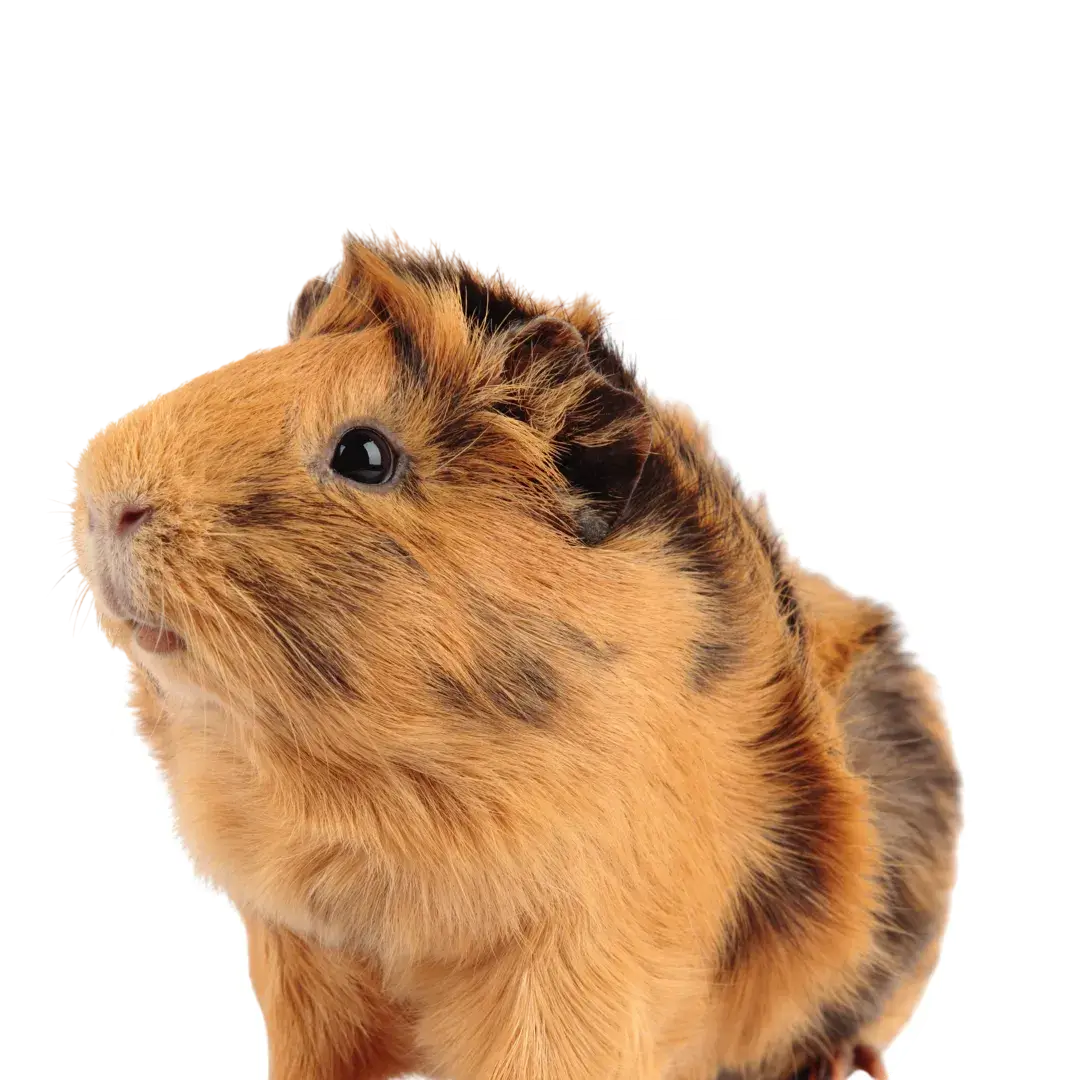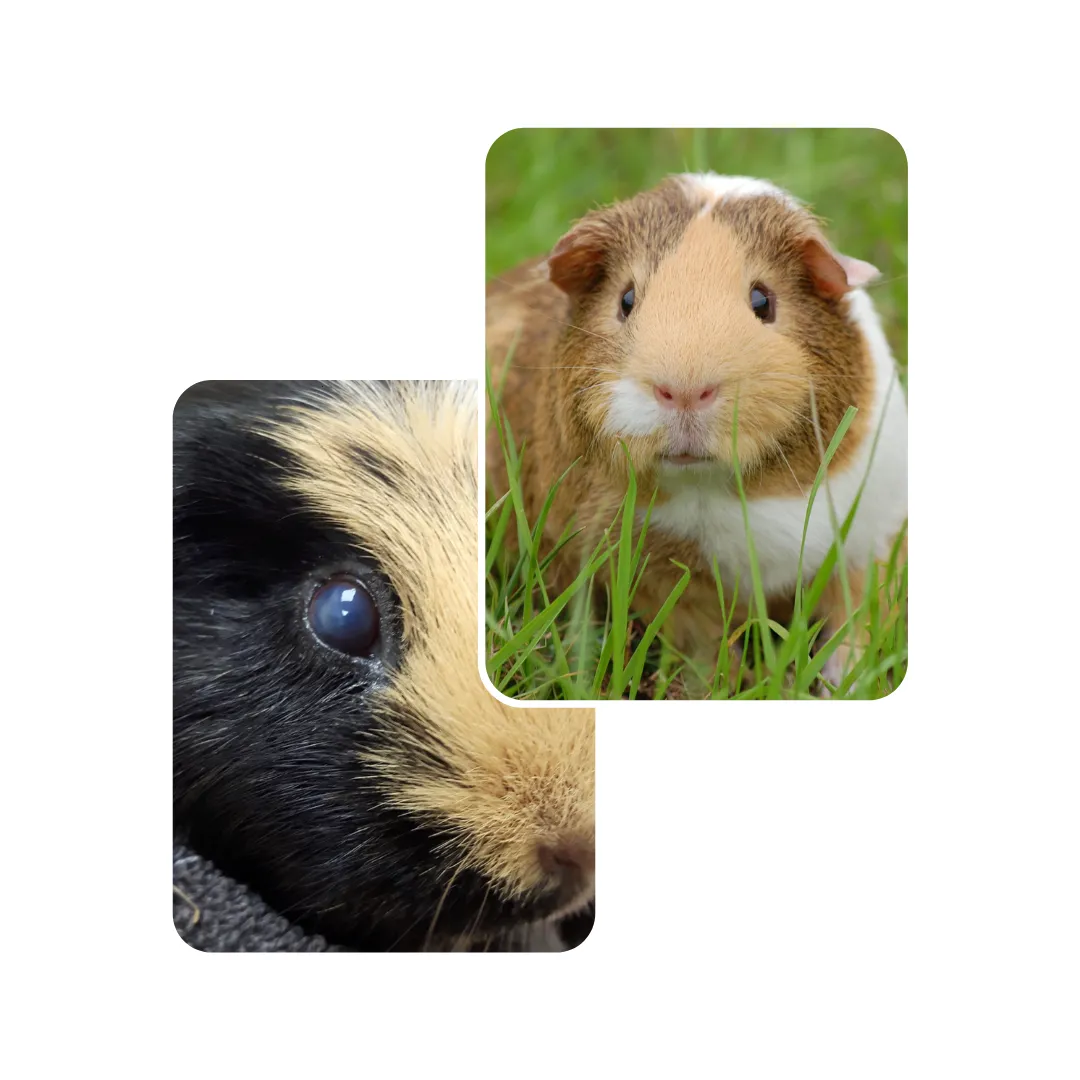
Guinea pig conjunctivitis can be caused by bacterial or viral infections, poor cage hygiene, or exposure to dust and irritants. Bedding materials that are too dusty, sharp hay, or cleaning chemicals can also irritate the eyes. In some cases, vitamin C deficiency weakens immunity, making the eyes more prone to infection.

The tissue around the eyes becomes inflamed, making them look swollen and sore.
Dried discharge forms crusts that make it hard for the guinea pig to open its eyes, especially after resting.
Guinea pigs may scratch or rub their eyes with paws or against objects in the cage. This can worsen the irritation or even cause injury.
In severe cases, the eyes lose their normal brightness and may appear cloudy, signaling deeper infection.
Clear tears often mean irritation, while yellow or green pus suggests bacterial infection. The discharge may glue the eyelids shut.
Irritation makes guinea pigs squint or blink constantly. Some may keep their eyes half closed to avoid pain from light.
Conjunctivitis often begins in one eye but can quickly move to the other if untreated.
Guinea pig conjunctivitis is when the thin, clear layer around the eyes becomes swollen, red, and irritated. You may see watery or pus like discharge and your guinea pig might keep blinking or squinting. It’s basically “pink eye” for guinea pigs, but it can be more serious if not treated.
The easiest signs to spot are red, puffy eyes with watery or yellow discharge. If your guinea pig has crusty eyelids that stick together in the morning, or it keeps pawing and rubbing its eyes, thats another warning. Some guinea pigs even stop eating or playing because the infection makes them uncomfortable.
If you don’t treat it, the infection can get worse and spread to both eyes. In serious cases, it can damage the cornea and affect your guinea pig’s vision. Your guinea pig may also lose weight and energy because of the pain and stress.
Keep the cage clean, use dust-free bedding, and avoid using strong smelling sprays or chemicals near the cage. Make sure your guinea pig has enough vitamin C in its diet to keep the immune system strong. Also, check their eyes daily for early signs of redness or discharge.
Treatment depends on the cause. Bacterial conjunctivitis needs antibiotic eye drops, while irritant related cases may only need soothing drops and better cage conditions. Your vet may also recommend supplements if vitamin C deficiency is a factor.
You can click the Appointment button on our website or walk to our vet directly. Booking early ensures your guinea pig gets treatment without waiting in discomfort.
Your pet deserves expert care – Subscribe now for trusted tips and updates from our pet experts.
